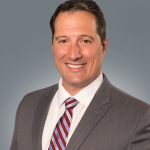You’ve heard it on TV, seen it on television and may even receive questions from your patients about CBD, or Cannabidiol. But is there any validity to the claims?
Matthew Zirwas, MD, FAAD, takes a deeper look into CBD Oil’s effectiveness and its place in the cosmeceutical world.
Where does CBD oil come from and why does that matter?
Both marijuana and hemp are derived from a plant of the Cannabaceae family, Cannabis. Cannabis can be bred with high levels of THC, which is classified as marijuana, or it can be bred to have little or no THC, which is known as hemp. CBD oil can be derived from both hemp and marijuana.
According to Dr. Zirwas, “There’s no official cutoff [for THC and CBD]. The closest thing to an official cutoff is 0.3%. If it has 0.3% or less of THC, it is considered hemp, but if it has 0.3% or more THC, the plant is considered marijuana” (For reference, in marijuana that is bred for producing a high, the THC content is around 20%, he says).

Cannabidiol is found mostly in the flowers, stems and leaves of the plant. If CBD products are derived from hemp, they’re considered legal. If a product comes from marijuana, it is not. Because of the plant’s origins, and due to the fact that there’s no regulation on CBD products at this time, however, almost all CBD products are contaminated with enough THC to cause a positive drug test, especially when taken orally.
Here is where CBD becomes problematic—some unregulated, commercially available supplements and tinctures claim to contain CBD when they in fact contain hemp oil, also known as hemp seed oil. There is no CBD in hemp oil, which is extracted from hemp seeds. Zirwas cautions those interested in CBD against purchasing products that contain hemp seed oil, as they can contain little to no CBD at all.
What does this have to do with CBD oil in beauty products?
Cannabidiol shows promise in medicine and dermatology, but has yet to be substantiated. There may be some benefit to CBD oil in beauty products, but there is no concrete evidence that supports the fact that it does anything at all.
There is a lot of evidence that it is theoretically possible for CBD products to offer benefits when applied topically, but this evidence is often based on the fact that there are cannabinoid receptors in the skin, says Dr. Zirwas.
“Let’s clear the air,” Zirwas says, “There are cannabinoid receptors in the skin, and it has been proven that Cannabidiol does not activate them.”
If CBD is effective when applied topically, it is likely due to other, non-CB1/CB2 receptors, he says.
Zirwas then delves into dosage—how does one determine the proper amount of CBD to take orally or include in a beauty product? There’s no indication of the “best” concentration of Cannabidiol—it needs more research.
Furthermore, Zirwas says, “Something that the sellers of CBD frequently mislead consumers and physicians [into believing] is by describing the amount of hemp oil or hemp seed oil in their product.” As there’s no CBD in these ingredients, they are using the terminology and assumptions that we make about cannabis to mislead people into thinking the product provides a stronger effect.
The simple fact is that we need more evidence to substantiate CBD claims. “A small, double-blinded study would be needed at minimum to establish the credibility of CBD products,” He says. “Nothing antecdotal, no case report, no case series, nor any open label study could make it credible.”
However, that doesn’t mean CBD products don’t work, Zirwas finishes. “I’m saying there’s no evidence that they work.”
What do I tell my patients?
If a patient hasn’t asked you about CBD yet, expect it to happen soon. Dr. Zirwas suggests referencing a website called ConsumerLab.com for “high-quality reviews of the evidence around almost all supplements.” It does require a subscription, but it can be a helpful tool when it comes to informing yourself. Dr. Zirwas stresses the importance of educating yourself on CBD instead of listening to those that are trying to sell you something.
Here’s what Zirwas shares with his patients:
- We don’t know if CBD actually works or just provides a placebo effect
- Using it topically is unlikely to cause any problems, but it is hard to know which products have the best CBD
- Taking CBD orally could cause a positive drug test
If a patient is asking about CBD just because they heard it’s great, Zirwas says, “I tell them we don’t know if it works or not, [and] I don’t think it’s worth spending the money to try it.”
If a patient inquires about it because they have a friend or family member using a CBD product, Dr. Zirwas has them try the product their friend or family member is using.
If they have a “real” skin disease, however, Dr. Zirwas recommends steering them away from CBD (because there is no evidence that it works) and asking them to consider Medical Marijuana, as it may
“Significantly reduce the impact of their disease on their quality of life, despite not affecting the actual clinical severity of their disease.”
If the patient would like to avoid CBD or THC, however, Zirwas says he often uses SSRIs for a similar effect. While benzodiazepines may also have a similar effect, he “has not and would not prescribe them for this purpose due to the potential of patients developing dependence.”
Want to hear more from Dr. Matthew Zirwas? Check out this video!




Leave a Reply to Anonymous Cancel Reply